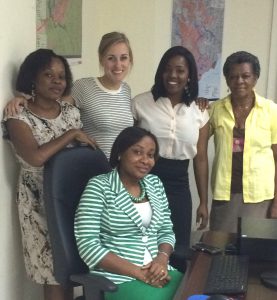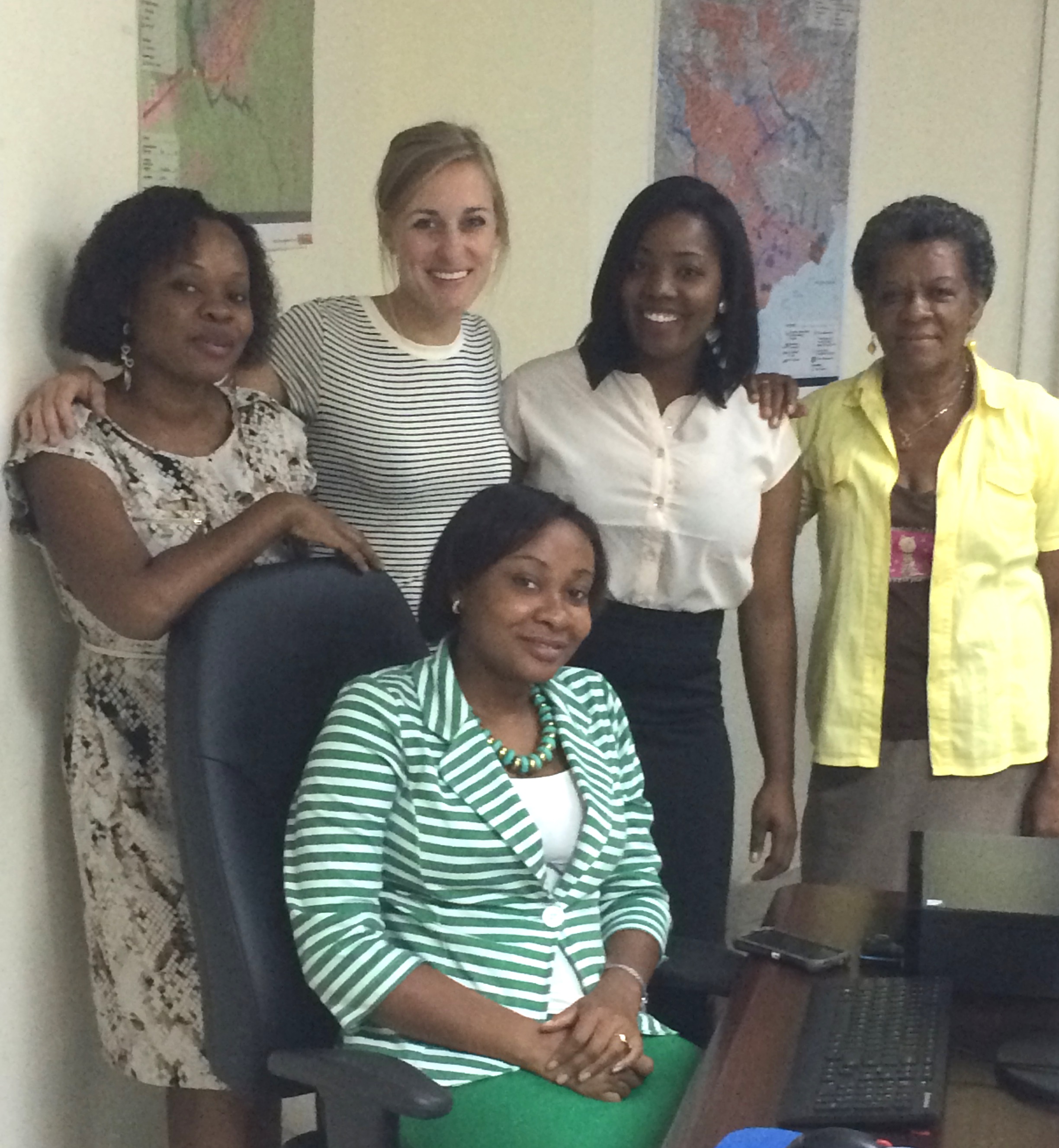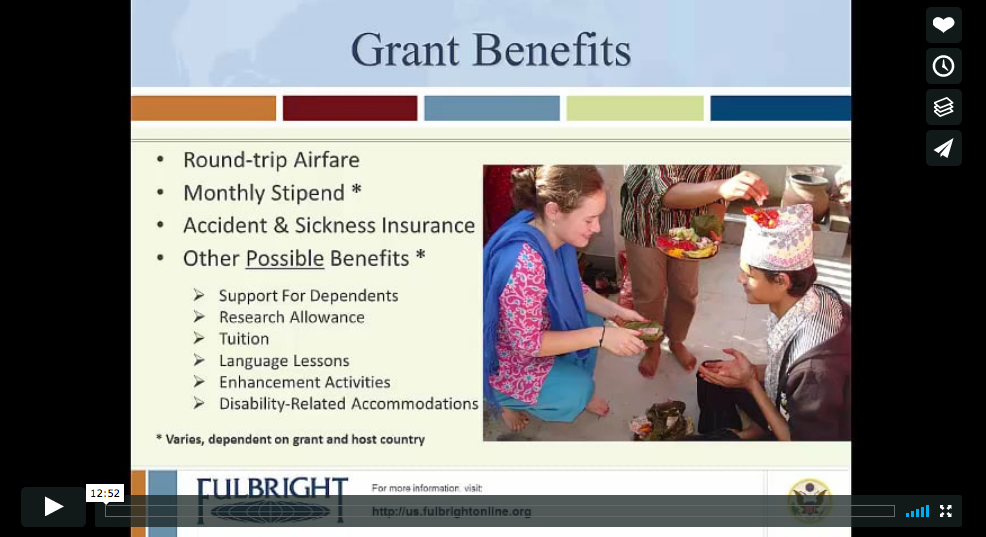
Katelyn Leader, 2013-2014, J. William Fulbright – Hillary Rodham Clinton Fellow to Haiti (second from left), with her colleagues from the Haitian government’s Ministry of Planning and External Cooperation
I believe that mutual understanding is the foundation of tolerance and peace; it can only develop, however, when people are willing to listen to and learn from one another. This is such a simple notion, and yet time and time again, we see the consequences of it being forgotten by leaders and individuals.
In September 2013, I arrived in Haiti as a J. William Fulbright – Hillary Rodham Clinton Public Policy Fellow. I was placed in the government’s Ministry of Planning and External Cooperation, where I was assigned to the Division of Territorial Planning and Local and Regional Development. Over the course of my fellowship, my primary responsibility was to design and implement a study examining urban expansion in an area north of Port-au-Prince known as Canaan. Unpopulated at the time of the 2010 earthquake, Canaan now hosts more than 100,000 people. Many live in substandard, makeshift shelters without access to basic services. My colleagues and I conducted over 100 interviews with individuals living in this area, and the perspectives and information that they shared offered valuable insight into the country’s housing and urban planning challenges.
The work that I did over the course of my fellowship would not have been successful without the collaboration and support of my Ministry colleagues. It was their guidance that helped me design a study that would be effective at gathering the right types of information. Whether it was helping to refine interview questions, expand my Creole vocabulary, clarify cultural context, or explain the layout of metropolitan Port-au-Prince, I could not have conducted effective research without their professional expertise and local knowledge. Moreover, our daily lunches and long conversations established the foundation of friendships that will last far beyond my fellowship.
Then, there were the men and women I interviewed, whose observations regularly challenged me to seek additional information and critically reflect on emerging themes or pre-existing notions. They left me thinking for weeks at a time about the role and responsibilities of the government, private sector, and international community and questions of land rights in Haiti.
Of course, new interactions are not always easy, and relationship building often comes with great frustrations stemming from the very differences that make us unique individuals. Many mornings in Haiti required pep talks or brainstorming sessions with my fellow Fulbrighters about how best to communicate an idea or achieve a certain goal. But how rewarding would any experience be if you didn’t have to overcome obstacles along the way?
My advice to potential Fulbright-Clinton Public Policy Fellows: First, if you are interested—apply. This grant is the opportunity of a lifetime – even if the application process seems a little intimidating – just do it. Secondly, as a Fulbrighter, leave behind any assumptions and expectations about the experience that you will have; be prepared to enjoy the journey by listening, reflecting, and adapting along the way.



No Comments